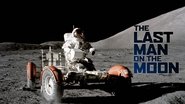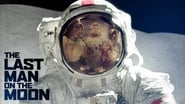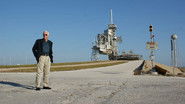mauro volvox
I am REALLY fascinated for all aspects of the moon landings and the Apollo program.I consider these guys real heroes and I am very proud to have had the opportunity to talk with Charles Duke (Apollo 16) even if for a few brief minutes.Having said that, it was with great disappointment that I have watched TLMOTM.I did not feel any excitement, drama. Nothing piqued my attention or curiosity.The whole thing felt like the video version of an obituary. And, curiously, Jack Schmitt, Cernan's partner in the Apollo 17 mission, was nowhere to be seen. That was a very disturbing omission...TLMOTM is only for the completists among us Apollo aficionados.
saxsymbol
Sure enough Eugene Cernan did a very unique thing...but mainly for himself: Let's be honest: He didn't exactly make headlines the way Armstrong did. Nor did he invent a cure to cancer. Of course space travel has it's romantic side and during 'Last Man on the Moon' there's plenty of impressive footage from the Apollo program (and some less impressive home video's from Cernan's personal collection with endless narration). This documentary however claims to be centered around Cernan, and I expected the same character study as the one I once saw of Neill Armstrong, a recluse who simply couldn't cope with the fame and a very interesting man. Cernan however seemed to have embraced fame a bit too eagerly thus loosing himself in his ego: He still travels across the globe to tell his story to anyone who cares and in my case: to someone who stopped caring halfway the documentary. There was so much 'hero talk' by Cernan himself it became a bit annoying. That's when I just wanted to watch more impressive NASA footage. Alas, I was treated to more Cernan talking and less Cernan 'moonwalking'. Just watch any NASA sponsored IMAX 3D docu and you'll be way more impressed.
tonyhaines-spp
I highly recommend this movie for anyone, but if you are a NASA buff you will see footage that is rarely seen. As an avid NASA fan boy from the 60s it's difficult to show me shots I have not seen before. This movie did that well. I appreciate how they mixed the old footage into this modern retrospective. Instead of expanding the old 4:3 footage and exploding pixels they just let it be. The Last Man on the Moon is unique film because of the elements that are not in the movie as well. Not in the movie are the rehashed NASA film angles that we are all kinda done with. Another standard of NASA movies is the heroic main characters and astronauts. Most of the personal stories still known today were products of the NASA press office and Time magazine. This movie avoids those fictional narratives. I loved the way we get to know Gene Cernan the man. Here's a guy with many flaws but he was good enough to fly into space three times. The film makers took their sweet time telling his story from early childhood to now, an 82 year old grandfather. The sound track is excellent! The film uses a perfect mix of original and period music. I was there when Apollo 17 launched from pad 39a in 1972. It was my fourth time watching a Saturn 5 lift off. This one was different however. It was late at night, delayed a few times. When it finally took off the night turned into day, it made a fitting end to the Apollo story.
mikerosslaw
One of the big reasons that NASA got their funding cut is that they never took full advantage of their own exclusive access to stunning space visuals to engage the American public, and keep them engaged. Sadly, like most inferior documentaries, "The Last Man on the Moon" relies far much too much on "talking heads," and it contains only a miserly few minutes of actual footage of Moon or even actual space exploration. I couldn't stand any more close-ups of old guys reminiscing about the good old days. I wanted to see more action footage of what they astronauts did, not hear about it. Also, the mawkish, nauseating sentimentality of pic forced me to turn it off fifteen minutes before it was over. MEMO TO THE PRODUCERS: HELLO?! IT'S A MOTION PICTURE! DON'T JUST TELL US. SHOW US!**You turned what could have been a spectacular visual odyssey into a saccharine soap opera. I couldn't care less what became of Mr. Cernan's marriage. I know that the astronauts were heroic, but you deprived us all of much of the priceless visual footage available showing exactly what made them heroes. You failed to exploit what must be an untapped veritable treasure chest of unseen space travel footage at NASA, and relied instead on the cliché of talking heads for filler. Boring.NASA has always been clueless about the value of providing comprehensive visuals to the public. We the public want to see NASA's stellar accomplishments. Had they understood the political and economic realities of governmental funding, NASA from the get-go would have created an entire division devoted exclusively to producing space exploration films for schools, TV, theaters, and yes, even for Congress, using breathtaking space exploration footage. This would have kept the program literally in the public eye with spectacular visuals of our nation's bold adventures, and it would doubtless have excited public support and fully justified with nonverbal eloquence the need for space exploration. Most people don't understand or care about tech-talk, but they fully appreciate breathtaking photos and true adventure motion pictures. NASA had a monopoly on the space exploration genre, but sat on the images instead of sharing them, say, in creating an ongoing series visually chronicling the heroic exploits of our space programs. No documentary has never have been successful relying on talking heads. It's a lazy, artless way to pad a treatment of an otherwise interesting and film-worthy idea. Walt Disney understood this and executed his timeless visual masterpieces in his marvelous "Disneyland" TV nature documentaries and theater productions as far back as the 1950s! Walt didn't lecture us; he showed us in stunning 35mm color motion pictures. You know, like NASA should have been dong for decades.In short, producers, YOU FAILED TO MAKE SPACE TRAVEL ITSELF THE STAR. Cosmically disappointing, and infinitely boring and overripe.**For an example of what I'm writing about, see my short nature documentary "The Underwater Wildlife of Big Sur" that I personally shot and produced at: https://www.youtube.com/watch?v=DtN0QCi2G2M



